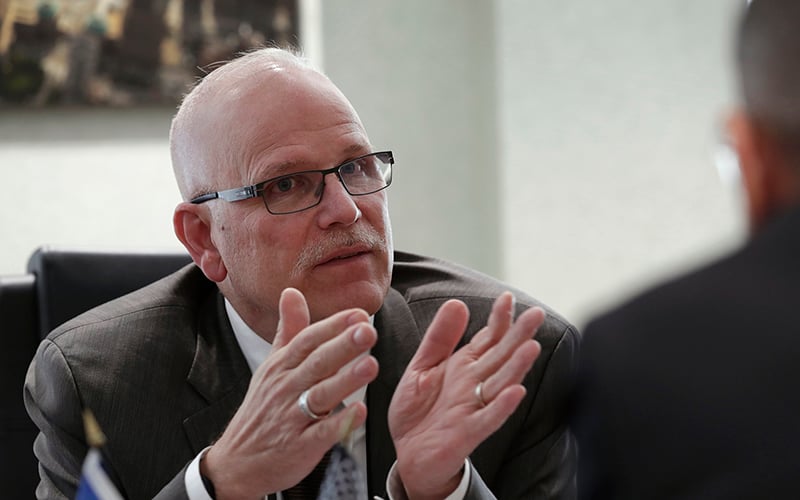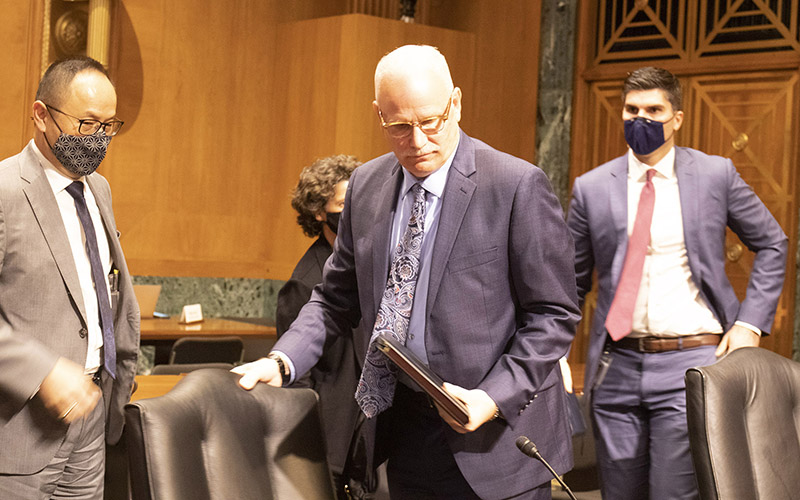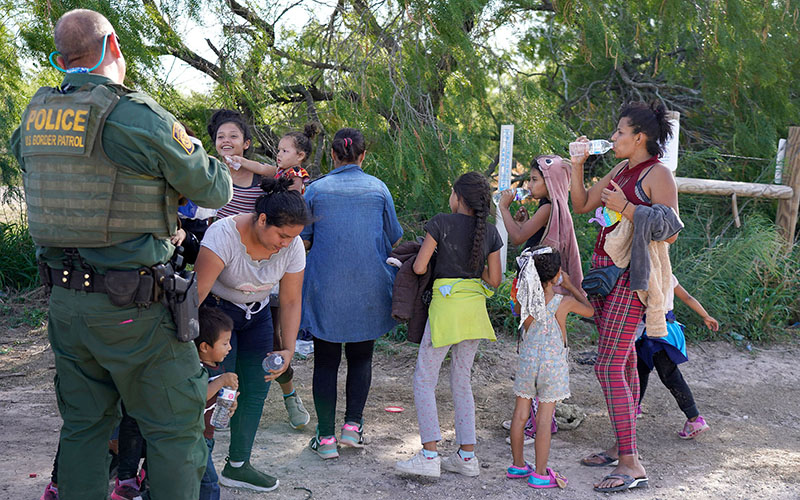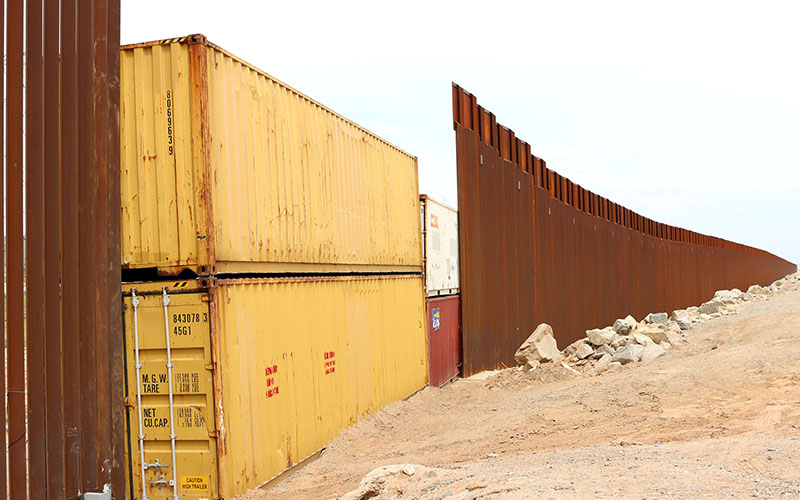WASHINGTON – Former Tucson Police Chief Chris Magnus resigned as head of Customs and Border Protection over the weekend, reportedly forced out after a tumultuous year that saw record-shattering numbers of migrants stopped at the southern border.
In a short letter Saturday to President Joe Biden, Magnus said his resignation would take effect immediately. Biden accepted the resignation and thanked Magnus for his service at CBP and for “nearly forty years of service and the contributions he made to police reform during his tenure as police chief in three U.S. cities,” according to a White House statement.
The resignation letter came the same day that Magnus was quoted in several news reports as indicating that he would not step down, after reports that Department of Homeland Security leaders had told him to quit or be fired.
It also came just 11 months after the Senate confirmed Magnus was confirmed by a razor-thin margin in the Senate. It caps a year in which border apprehensions surged to more than 2.3 million and Magnus’ management came under withering fire by critics, the loudest of which was the union representing Border Patrol agents.
“CBP Commissioner Magnus deserved to be fired,” said a tweet Sunday from the National Border Patrol Council, which added that it had been “opposed to the Magnus appointment from the outset.”
“As a crisis rages at our border he focused on imaginary BP ‘culture’ problems instead of enforcing our laws,” the union tweeted.
But some were still surprised by the resignation. Rep. Raul Grijalva, D-Tucson, called Magnus “another casualty in the inability to come to some sort of solution-based discussion about not just the border, but everything else associated with immigration.”
“He wanted to change the culture, he wanted more accountability, he wanted additional accountability and transparency in the operation of Homeland Security and the largest federal law enforcement force in the country,” said Grijalva, adding that “resistance by the union” to his proposed changes harmed Magnus politically.
“I think that’s where the pushback came from and I hope that is not abandoned,” Grijalva said of the reform efforts started by Magnus.
At his Senate confirmation hearing in October 2021, Magnus told lawmakers he wanted the CBP job for the same reason he got into law enforcement: He wanted to “make a difference.”
Republicans were skeptical, unsuccessfully pressing Magnus to say there was a crisis at the border, which had just ended a year in which a then-record 1.7 million migrants, and questioning his lack of experience running a large agency.
He was eventually confirmed on a 50-47 vote in December. At his swearing-in, Homeland Security Secretary Alejandro Mayorkas touted Magnus’ “decades of experience as a law enforcement officer” and adding that he was “pleased he will now serve as the commissioner of CBP.”
In the months since, however, the relationship between Mayorkas and Magnus soured, according to published reports, as the surge of migrants at the border kept rising. The number eventually reached 2.38 million for fiscal 2022, or 644,258 more than were caught in the year before he took over.

Customs and Border Protection Commissioner Chris Magnus speaks at an Oct. 18 meeting in Washington with officials from the Israel Tax Authority. Magnus was forced out over the weekend, less than a year after taking over as head of CBP. (Photo by Glenn Fawcett/Customs and Border Protection)
Magnus faced other crises during his short tenure in office. After photos surfaces of mounted Border Patrol agents appearing to use their reins to strike at migrants at the Texas border, an internal investigation blamed the incident on a lack of policies and training. Magnus defended the “vast majority” of agents who behaved appropriately, but called for changes to make sure the same thing does not happen in the future.
Magnus ordered a review in vehicle pursuit of migrants in May, according to news reports, in response to reports that the number of migrants killed or injured in such pursuits was rising.
After House members expressed “grave concerns” that the agency’s Critical Incident Investigative Teams were acting to impede investigations into agent misconduct, rather than uncovering problems, Magnus announced an overhaul of internal investigations for CBP. He said the work of the investigative teams would be handled by the Office of Professional Responsibility, to “ensure our agency achieves the highest level of accountability.”
Criticism of Magnus was constant from the union, which said it considered him “in over his head.” Before taking over at CBP, an agency with more than 60,000 workers, Magnus was police chief in Tucson, where he oversaw a department of about 1,100 employees.
The Arizona Sheriffs Association in September took a vote of no confidence in Magnus, saying this his “lack of federal experience … has become increasingly apparent” in the surging numbers of migrants at the border.
“Unfortunately, the current administration and Commissioner Magnus do not appear to share this priority (in border security) and the effects are being felt in Arizona and across the country,” the sheriffs’ letter said.
Before he was chief in Tucson, Magnus ran police departments in Richmond, California, and Fargo, North Dakota.
Magnus could not be reached for comment Monday and Customs and Border Protection did not respond to a request for comment.
White House Press Secretary Karine Jean-Pierre refused to elaborate on the resignation, in response to a reporter’s questions Sunday, referring only to the Saturday statement that said the president “thanks Mr. Magnus for his service at CBP and wishes him well.”
Grijalva said that he hopes Magnus’ efforts to address “accountability, use of force and additional training around human interaction” are a mission that isn’t forgotten at the agency.



